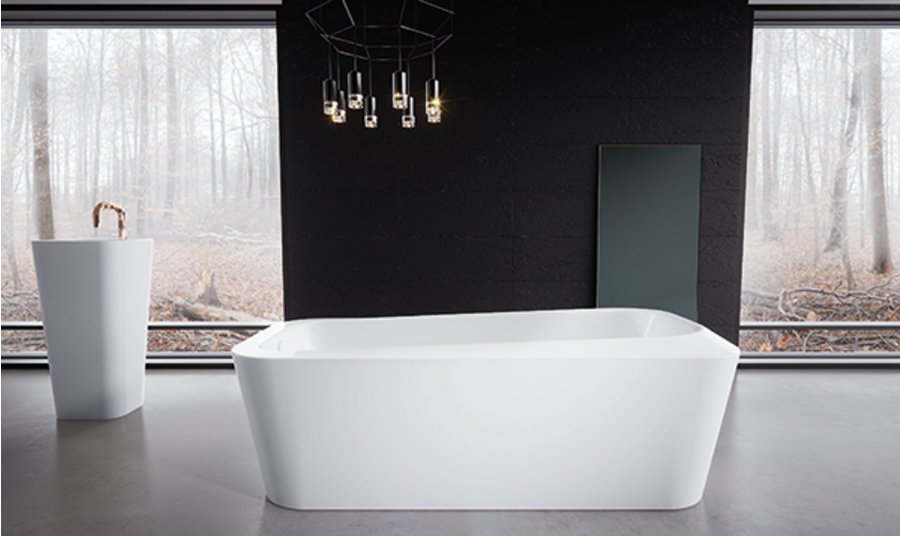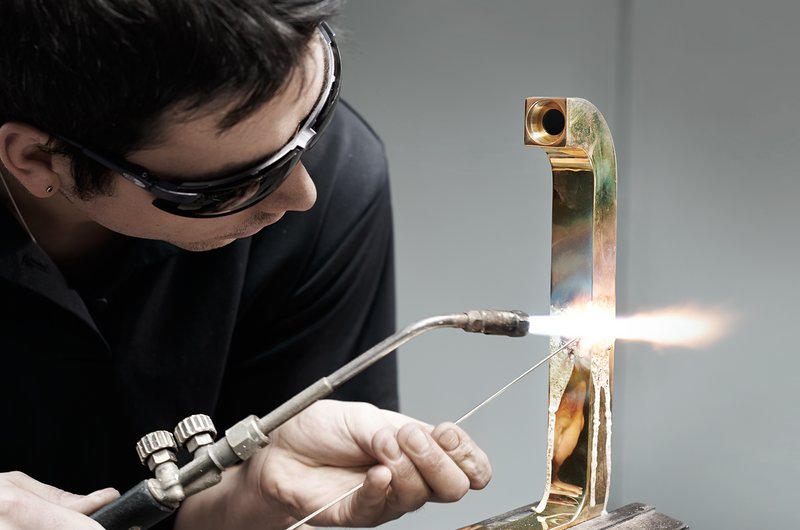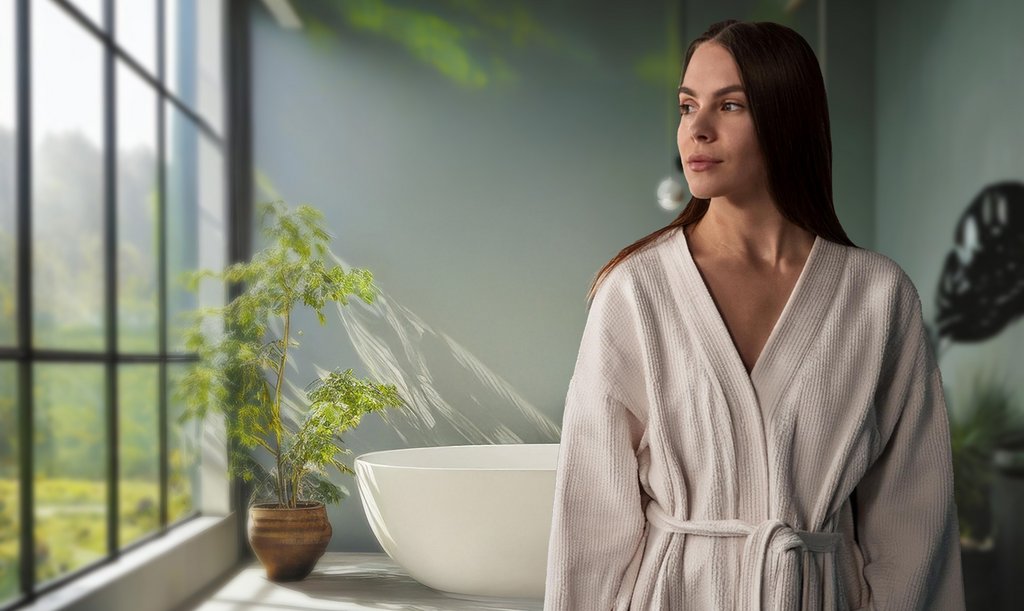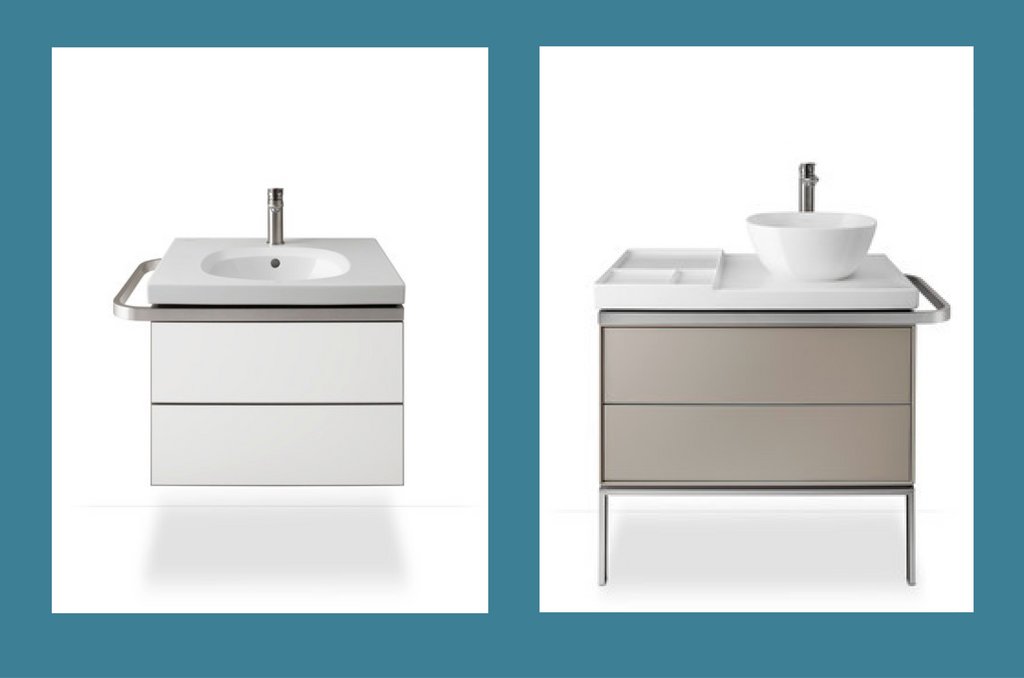Trend 3
The future belongs to workmanship: the new ideal of material values

Photo: Kaldewei
Background photo: Axor
As the digitisation of everyday life leads to an increasing sense of alienation, there is a growing fascination with anything tangible, with anything that works in a way we can understand. Today, it’s not high-tech futuristic design, gold taps or electrically adjustable recliners that are the height of luxury. Instead, anyone who wants to make an impression or just live well surrounds himself with simple but top-quality things such as classically designed furniture in solid wood, hand-hemmed covers and hand-upholstered sofas. He feathers his nest with wool and leather, sits on genuine originals and stands on hand-knotted carpets with modern patterns.
It is no coincidence that, in the digital age, our fascination with mechanical clocks and watches is growing – timepieces that are made not with the greatest-possible efficiency but with the greatest-possible skill and plenty of time. With all the ones and zeros that organise every aspect of our lives and supply our entertainment, we long for transparent, understandable manifestations of cause and effect. As much as we are fascinated by the black box of digitisation, we can’t help wishing for a return to simple keys with proper teeth, for home-made bread and self-assembled shelves. The DIY craze, the desire for natural materials, the resurgence of the camping movement and the latest trends (from the country kitchen look all the way to outdoor living) are all indicative of our longing for authentic sensory experiences – not necessarily as part of an adventure holiday, but at home in our gardens, kitchens and bathrooms. Faced with the increasing virtuality of day-to-day life, tangibles are becoming a sensuous luxury and our appreciation of workmanship stands for the rediscovery of a world we can touch. One product that fits in perfectly with this trend is Arik Levy’s freestanding bathtub “Meisterstück Emerso” for Kaldewei. With its high, slanting backrest and long base, it is an ergonomic and modern interpretation of historical bathroom shapes. The undulating rim of the tub twists in on itself, turning this model into a fluid sculpture that seems to have no beginning and no end and brings diagonal and horizontal forms together in a sensuous whole. The hand-finished tub is made entirely of steel enamel and has seamless, conical panelling, a flush-fitting waste cover and a discreet overflow. Almost every sanitaryware manufacturer has a department for bespoke production that makes customised products not just for the contract sector but for private customers as well. The spectrum ranges from made-to-order shower enclosures to bathtubs and shower trays, custom-sized ceramic washbasins and even fittings.




